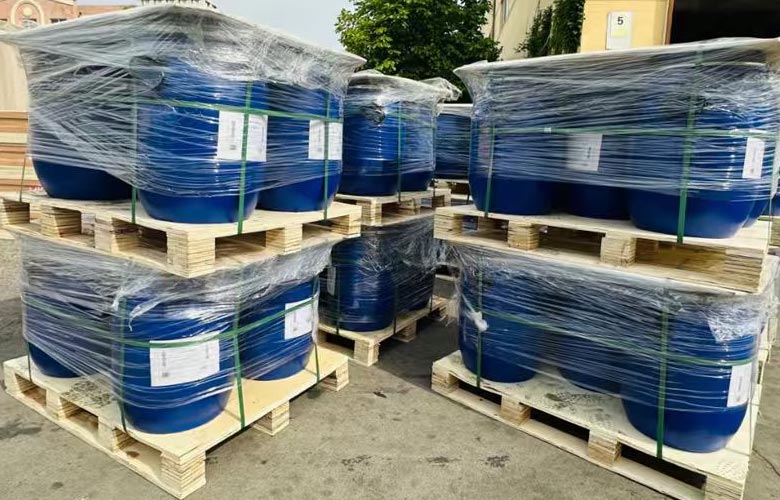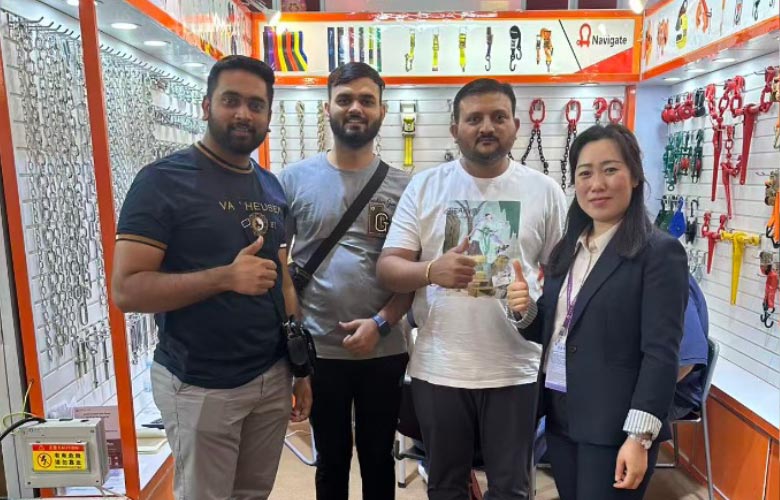
Join us at Canton Fair 2025, our booth 13.1C05 to explore new oppotunities!
2025-04-07
G30 Proof Link Chain
2025-05-27Industrial welded chains are heavy-duty chains constructed with welded links, offering superior strength and durability compared to non-welded chains. These chains are essential in various industrial applications due to their ability to withstand heavy loads, abrasive environments, and high-impact forces.
Here’s a breakdown of key aspects of industrial welded chains:
Types of Welded Chains:
- Proof Coil Chain (Grade 30): A general-purpose utility chain suitable for fishing, cargo lashing, and guard bars. Not for overhead lifting.
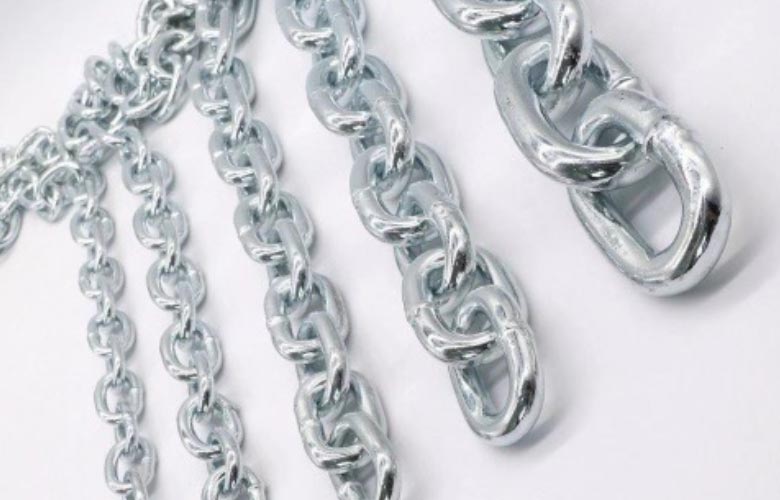
- High Test Chain (Grade 43): Offers higher tensile strength than proof coil chains, making it suitable for towing and load securement. Not for overhead lifting.
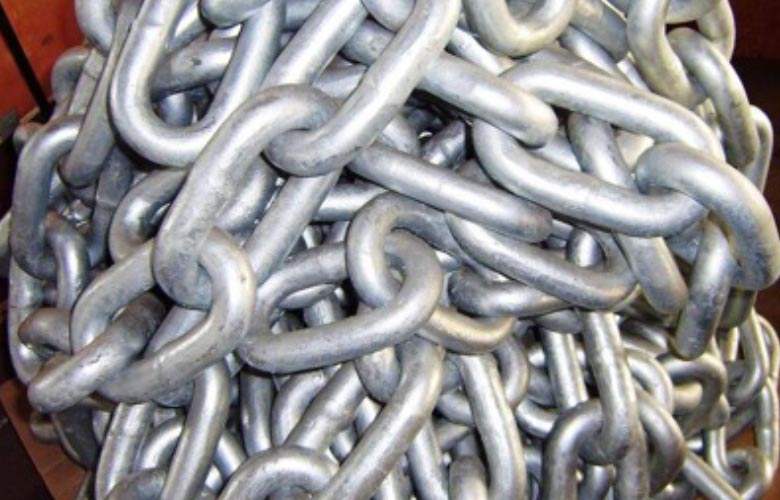
- Transport Chain (Grade 70): The strongest carbon steel chain, ideal for load securement in transportation. Not for overhead lifting.

- Alloy Steel Chain (Grades 80, 100, 120): High-strength chains with excellent abrasion resistance and a high strength. For overhead lifting and sling assemblies. Grade 100 is about 25% stronger than Grade 80.
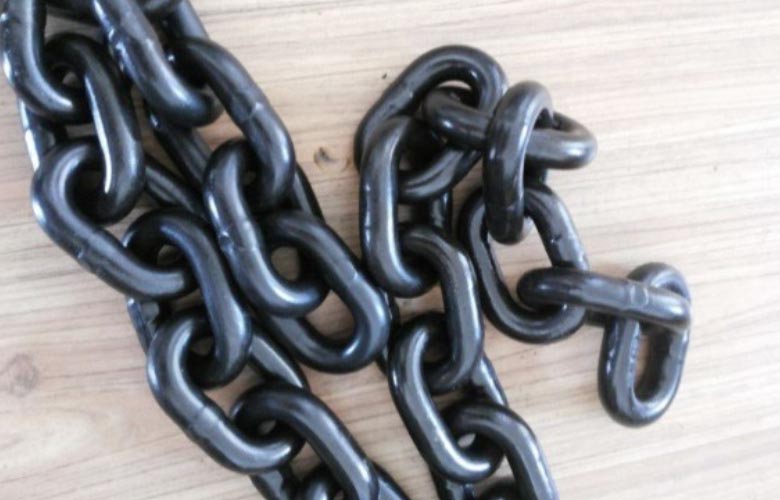
- Stainless Steel Chain: Strong corrosion resistance, suitable for marine and some special situation. Stainless steel304, 316, and 316L are popular.

- Straight Welded Steel Chain: A simpler design often used in overhead lifting applications and can accommodate various attachments.
- Passing Link Chain: Features links that pass over each other, providing flexibility.
- Long Link Chain: Has longer links than standard chains.
- Twist Link Chain: Features twisted links.
- Machine Chain (Straight and Twist Link): Used in various machinery and equipment.
Applications of Industrial Welded Chains:
- Forestry: Handling logs, debarking drums, and other timber processing equipment.
- Construction: Securing loads during transportation, lifting heavy objects, and anchoring equipment.
- Marine Applications: Mooring boats, anchoring equipment, and securing cargo on decks.
- Towing and Mooring: Securing boats, trailers, and other equipment during transport.
- Mining: Transporting heavy ore and materials in harsh and abrasive conditions.
- Cement Industry: Handling clinker and raw materials in high-temperature, abrasive environments.
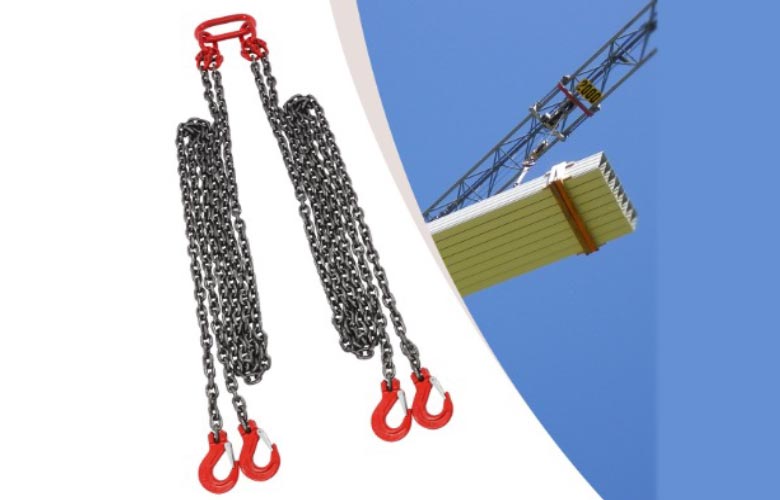
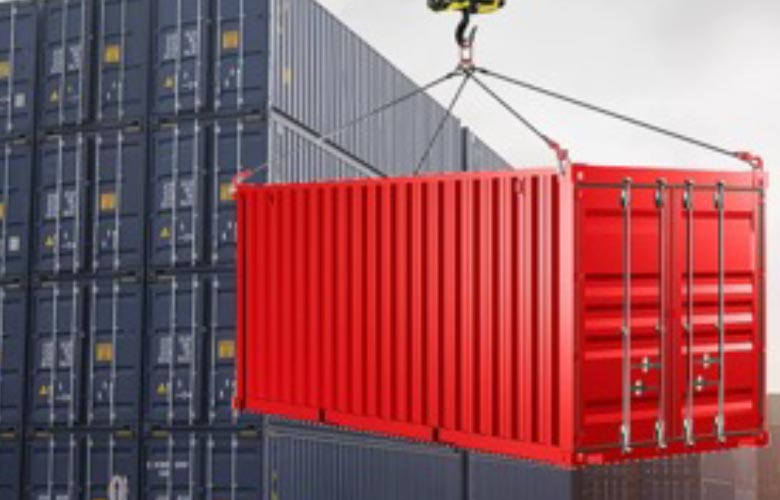
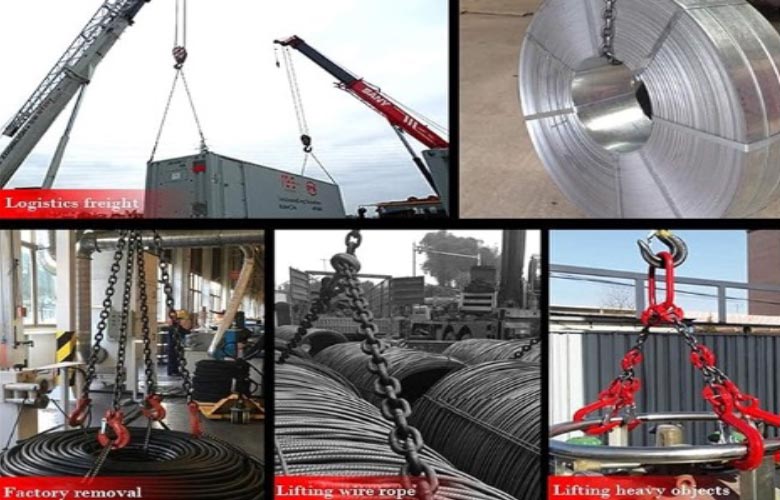
Key Features and Benefits:
- High Strength and Durability: Welded construction ensures the chain can withstand significant loads and harsh conditions.
- Wear and Abrasion Resistance: Many industrial welded chains are heat-treated and made from high-quality steel to resist wear from abrasive materials.
- Versatility: Available in various sizes, grades, and configurations with customizable attachments to suit diverse applications.
- Safety: When the correct grade and type are used, welded chains provide a safe and reliable solution for lifting and securing heavy loads.
When selecting an industrial welded chain, it’s crucial to consider the specific application requirements, including the load capacity, environmental conditions, and potential for abrasion or impact, to ensure optimal performance and safety.



